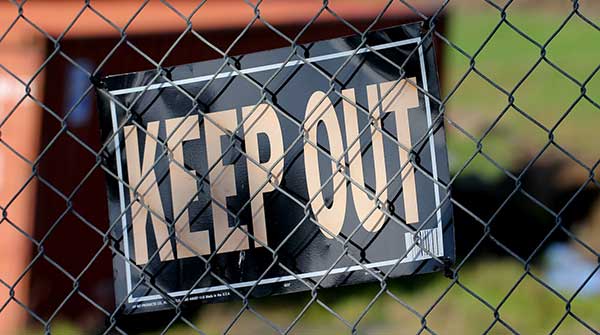Manitoba performs well in the Canadian Property Rights Index but could do better
 Property rights, considered an abstract concept by many, are the silent guardians of Manitobans’ prosperity, privacy, and freedom.
Property rights, considered an abstract concept by many, are the silent guardians of Manitobans’ prosperity, privacy, and freedom.
Sound fiscal policies – including competitive taxation – are key to improving the economy, but a commitment to strong individual property rights is central to a thriving economy and to protecting our privacy and safeguarding us from unnecessary government intrusion.
As Manitoba inches closer to a provincial election, it’s time to reflect on where we stand and what areas we must improve to protect our property rights.
The Frontier Centre for Public Policy recently released the 2023 Canadian Property Rights Index, shedding light on seven critical indicators of property rights. This includes the land title system, expropriation, regulatory takings, civil forfeiture, heritage property, endangered species, and municipal power of entry. A decade since the first index was published, the report’s insights reveal both commendable achievements and alarming areas of stagnation for Manitoba.
 Photo by Sandy Millar |
| Related Stories |
| Economic freedom stifled by inadequate property rights
|
| Academic freedom one of the foundations of democracy
|
| Canada has a robust history of freedom
|
Manitoba stands among the top five high-performing jurisdictions in Canada, sharing this position with Saskatchewan, just as it did in the 2013 index. Our Torrens-style form of property title registration sets us apart from the deeds system common in the Atlantic provinces and parts of Ontario. The Torrens ensures security of title by maintaining a centralized land registry and providing funding if there are costs associated with errors. The Torrens system also offers a more simplified and less costly process.
Manitoba also provides more procedural safeguards if property owners find themself in a situation where the government is trying to expropriate their land. On municipal power of entry, Manitoba maintains safeguards to protect landowners. On civil forfeiture, where the state can move to take away your property for alleged criminal activity, Manitoba also scores high on safeguards against abuse. Lastly, on heritage property, Manitoba performs relatively well.
However, the report also casts a shadow on our accomplishments. Manitoba’s fifth-place ranking is also the lowest among the top five, echoing its stagnant performance since 2013. We are neither improving nor deteriorating, and complacency seems to be settling in.
Our scoring on endangered species regulations – where the government interferes with a person’s property because an endangered species of wildlife or plant has been discovered – is not as high as other jurisdictions.
Of even more concern is our poor performance on zoning regulations, where we place strict restrictions on compensation rights, often reducing property value. It’s worth noting that this isn’t a problem unique to Manitoba. Canada, as a whole, falls behind other advanced countries in compensating landowners affected by land use regulations.
These insights should serve as both a pat on the back and a call to action. Property rights, although abstract, are inseparable from our high living standards and economic well-being.
As the province prepares for its next provincial election in the fall, both the NDP and the reigning Progressive Conservatives must commit to improving property rights. It’s time for both parties to commit to improving property rights and pledge to provide more protections, especially in the form of relief from land use regulations that subtly degrade the province’s economic future.
Manitoba’s prosperity hinges on how much we respect and protect property rights. While we have scored well, we cannot afford to rest on our laurels. The province’s future depends on our collective vigilance, dedication, and unwavering commitment to preserving the rights that have long served as the cornerstone of our society.
Joseph Quesnel is a Senior Research Associate with the Frontier Centre for Public Policy. He is the author of the recent Canadian Property Rights Index.
For interview requests, click here.
The opinions expressed by our columnists and contributors are theirs alone and do not inherently or expressly reflect the views of our publication.
© Troy Media
Troy Media is an editorial content provider to media outlets and its own hosted community news outlets across Canada.

